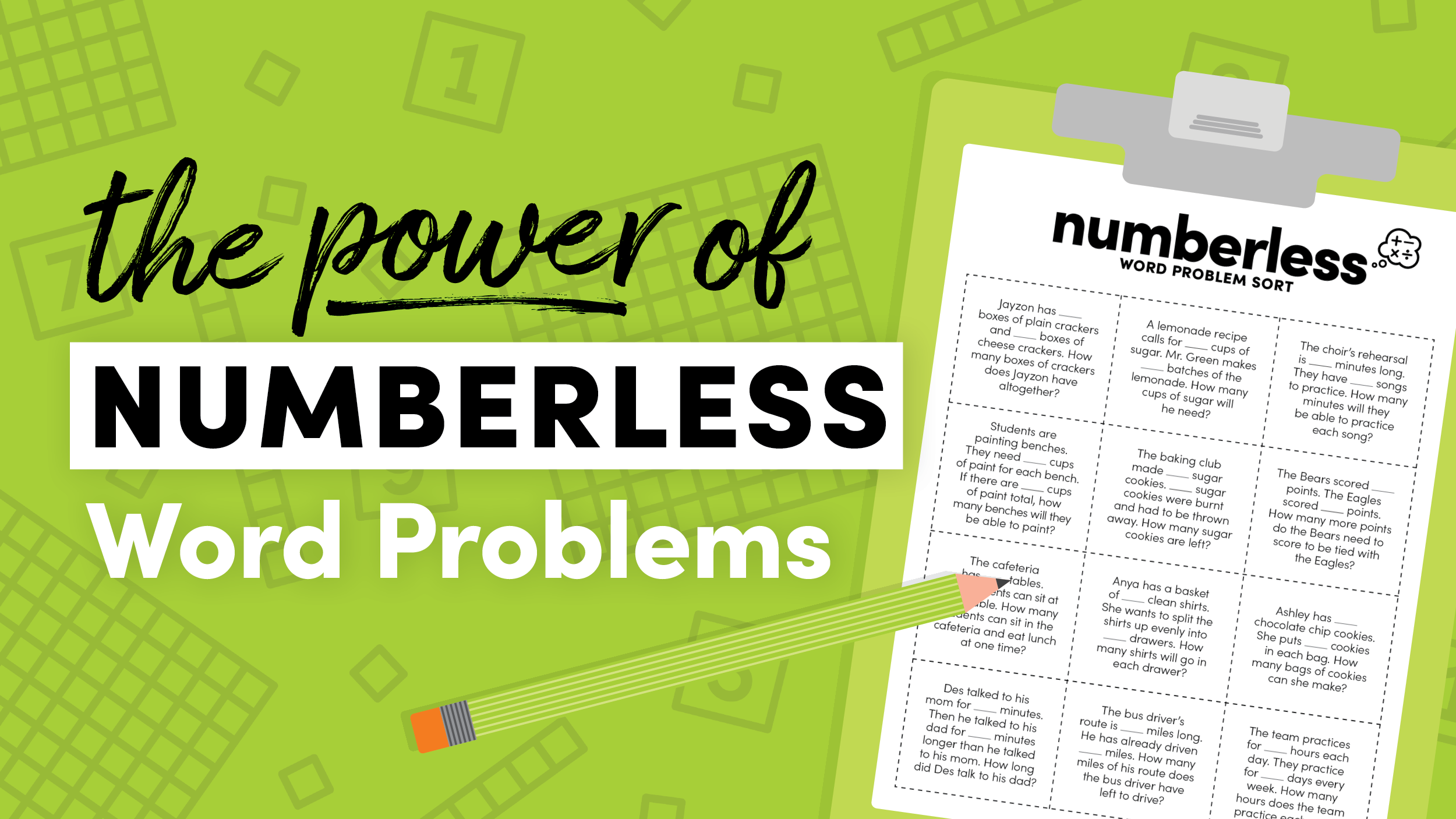Helping Students Get Unstuck When Problem Solving
I think it's safe to say we have all had those students who immediately after reading a math problem raises their hand while shouting "but I don't get it!" It can be incredibly frustrating because you know they have not truly taken a reasonable amount of time to think through the problem and try to do something.
Often times we help them get started and move along, until the next problem comes and you hear... "but I don't get it!" So now we are left wondering...
Why do some students repeatedly respond like this? What can we do to help them?
I think there are two reasons why this happens...
They aren't truly stuck.
They are truly stuck.
Brilliant, right? Let me explain. Sometimes students are so used to struggling and receiving immediate help that they take on this attitude of "learned helplessness" that causes them to believe that they cannot do anything without help.
They don't show the habits of an independent math learner. Instead, they give up at the first sign of struggle. So what can we do to help these students? The same thing you would do to help a student who is truly stuck.
Ask questions. Listen. Ask more questions.
It's important that we don't give students the impression that raising their hand and asking for help gets them off the hook from doing any thinking (if that were the case, why would they ever work independently?).
Instead, we need to set the expectation that asking for help will require a little work on both of our parts. We don't want to leave students stuck, but we also don't want to provide too much help and minimize the cognitive demand of the task.
It requires balance and a very intentional line of questioning. Here are some thoughts to help students get unstuck...
Get students talking. The more they talk about the problem, it's possible they may get themselves unstuck.
Find out what students do know or understand about the problem. Again, sometimes just talking about what they do know helps them get started on their own.
Ask students what specifically about the problem is causing them to be stuck. Is it the academic language? Is it the context they aren't familiar with? Is it the math content itself? This will require thinking on their part, but it will help you provide very targeted assistance.
*This post contains affiliate links to two great math resource to assist with the maintenance of this blog!
Having this conversation with students who are stuck is beneficial for them because it gets them in the habit of talking about math, sharing their thinking, and finding something in the problem that they can build on.
For our little friends who aren't truly stuck but always feel that they need help, these questions will help them realize that they CAN do it on their own. The more they feel that they can do it on their own, the more willing they will be to struggle independently in the future.
Remember, learned helplessness is often built over years, so it's not something you can break in minutes. Solving for Why and Powerful Problem Solving are two books that I absolutely love! Solving for Why is a great book if you work with a number of students who struggle with math. It walks you through understanding their struggles, assessing them appropriately, and then how to teach them for true math understanding. Powerful Problem Solving is a book full of activities that you can do with your students to help grow their problem-solving skills.
So, what do you think? How do you help students get unstuck?



The beauty in this strategy is that it offers students a problem that is appropriate for where they are currently at in their learning. It also gives them choice, which immediately increases engagement and gives them ownership in their learning.